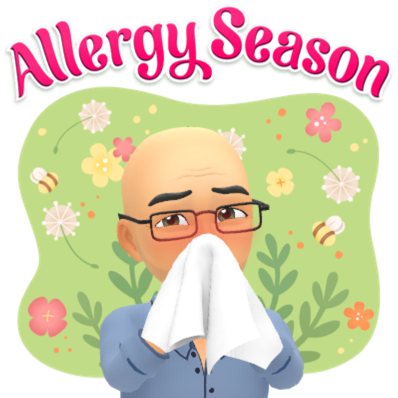After the kids are back to school then we see cough and cold season

Fall is here and kids are back in school. Cough and cold season is also here and that means its time to bolster our immune systems so that we can overcome any nasty virus’s that come our way.
The immune system is the body’s natural defense against infections, illnesses, and diseases. It acts like a shield, constantly working to protect us from harmful invaders such as viruses, bacteria, and other pathogens. Keeping our immune system strong and healthy is crucial, especially in times when new diseases emerge, like the COVID-19 pandemic.
The Front Line COVID-19 Critical Care Alliance (FLCCC) has provided guidelines to help people support their immune systems effectively. Let’s break down these guidelines in a way that’s easy to understand and apply to everyday life.
Before diving into the guidelines, it’s important to know what the immune system is and how it works. The immune system is made up of various cells, tissues, and organs that work together to defend the body against foreign invaders. It includes white blood cells, antibodies, the spleen, thymus, bone marrow, and more. When the immune system detects something harmful, like a virus, it triggers a response to fight it off.
Supporting the immune system is essential for maintaining good health. A strong immune system can prevent infections and help you recover faster if you do get sick. Conversely, a weak immune system can leave you vulnerable to frequent infections and make it harder for your body to fight off illnesses.
The FLCCC guidelines provide practical advice on how to boost and maintain immune health, particularly in the context of preventing and managing viral infections.
Key Nutrients for Immune Support
Vitamin D3:
Role in the Body: Vitamin D3 is crucial for immune function. It helps regulate the immune response, reduces inflammation, and enhances the pathogen-fighting effects of monocytes and macrophages—white blood cells that are important for immune defense.
How to Get It: Your body produces Vitamin D when exposed to sunlight, but it’s also found in foods like fatty fish, egg yolks, and fortified dairy products. The FLCCC recommends taking a Vitamin D3 supplement, especially in winter months or if you have limited sun exposure.
Vitamin C:
Role in the Body: Vitamin C is a powerful antioxidant that supports various cellular functions of the immune system. It helps protect against oxidative stress and aids in the production of white blood cells.
How to Get It: Vitamin C is abundant in fruits and vegetables, particularly citrus fruits, strawberries, bell peppers, and broccoli. The FLCCC suggests taking a daily Vitamin C supplement to ensure you’re getting enough.
Zinc:
Role in the Body: Zinc is essential for immune cell development and communication. It also plays a role in inflammatory responses and helps prevent the replication of viruses.
How to Get It: Foods rich in zinc include meat, shellfish, legumes, seeds, and nuts. The FLCCC recommends zinc supplementation, especially during times of illness or when you might be at higher risk of infection.
Quercetin:
Role in the Body: Quercetin is a plant pigment (flavonoid) with antioxidant and anti-inflammatory properties. It helps enhance the immune response and works synergistically with zinc to prevent viral entry into cells.
How to Get It: Quercetin is found in foods like apples, onions, berries, and tea. The FLCCC advises considering a quercetin supplement as part of an immune-supportive regimen.
Melatonin:
Role in the Body: Melatonin is a hormone that regulates sleep, but it also has antioxidant and anti-inflammatory effects. It supports immune function by enhancing the ability of the immune system to respond to infections.
How to Get It: Your body produces melatonin in response to darkness, so good sleep hygiene is important. The FLCCC suggests melatonin supplements, particularly in the evening, to support both sleep and immune health.
Healthy Lifestyle Choices for Immune Support
Beyond taking the right nutrients, making healthy lifestyle choices is key to maintaining a strong immune system. The FLCCC guidelines emphasize the following habits:
Quality sleep is essential for immune function. Lack of sleep can weaken the immune response, making you more susceptible to infections. Aim for 7-9 hours of sleep each night to give your body the rest it needs.
A diet rich in fruits, vegetables, whole grains, and lean proteins provides the vitamins and minerals necessary for immune health. Avoid processed foods and excessive sugar, which can suppress immune function.
Physical activity boosts circulation and helps immune cells move through the body more effectively. Regular exercise also reduces stress, which can weaken the immune system. Aim for at least 30 minutes of moderate exercise most days of the week.
Chronic stress can negatively impact the immune system. Practice stress-reducing techniques such as deep breathing, meditation, or yoga to keep stress levels in check.
Drinking plenty of water helps keep your body functioning properly, including your immune system. Water supports the production of lymph, which carries white blood cells and other immune system cells throughout your body.
Avoiding harmful substances such as the following:
Smoking: Smoking damages the immune system and makes the body less effective at fighting diseases. Quitting smoking is one of the best things you can do for your immune health.
Excessive Alcohol: Drinking too much alcohol can suppress the immune system, making you more susceptible to infections. Moderation is key.
Processed Foods: Foods high in sugar and unhealthy fats can contribute to inflammation and suppress immune function. Focus on whole, nutrient-dense foods instead.
Supporting your immune system is about more than just taking supplements; it involves a holistic approach to health. By following the FLCCC guidelines, which emphasize key nutrients, healthy lifestyle choices, and avoiding harmful substances, you can keep your immune system strong and resilient. These practices are not only useful for preventing illnesses but also for enhancing your overall well-being. Remember, a healthy immune system is your body’s best defense, so take care of it with these simple yet effective strategies.
Stop by the pharmacy if you want more information or help to choose quality supplements for immune support. Please visit my website at www.irsfeldpharmacy.com to find this and other archived articles in the blog section.
Until next time, be vigilant about your health!!












Share On: